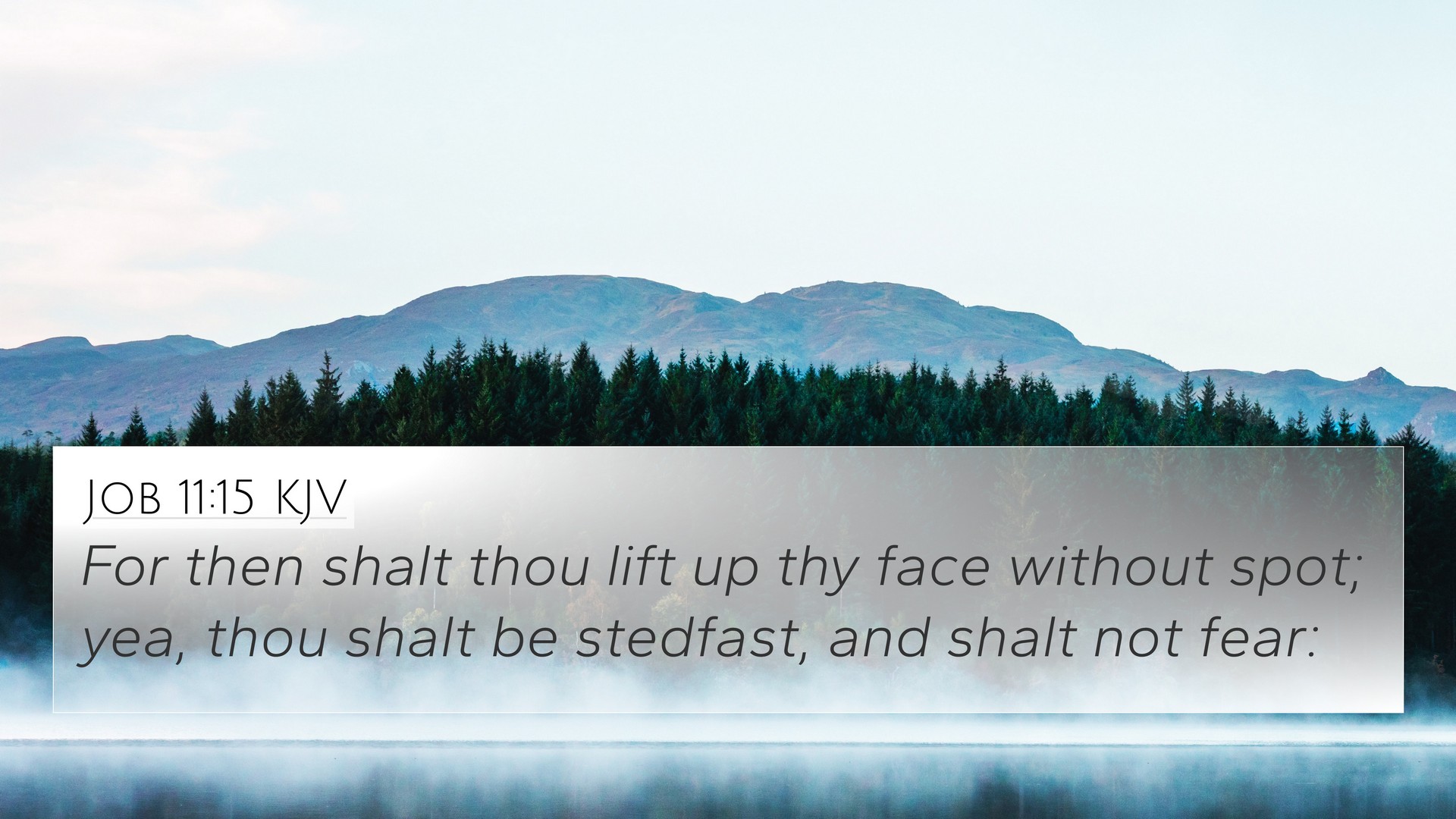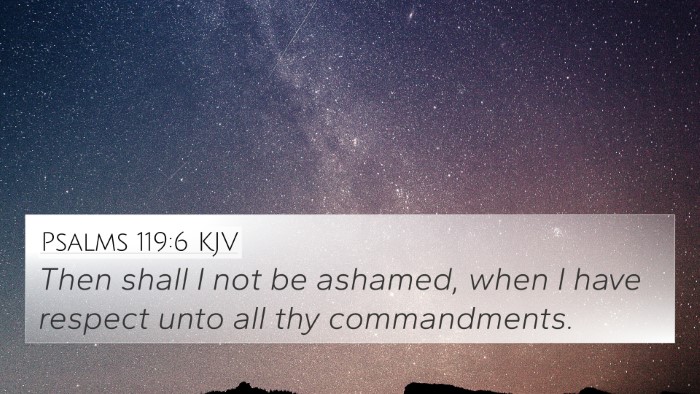Old Testament
Genesis Exodus Leviticus Numbers Deuteronomy Joshua Judges Ruth 1 Samuel 2 Samuel 1 Kings 2 Kings 1 Chronicles 2 Chronicles Ezra Nehemiah Esther Job Psalms Proverbs Ecclesiastes Song of Solomon Isaiah Jeremiah Lamentations Ezekiel Daniel Hosea Joel Amos Obadiah Jonah Micah Nahum Habakkuk Zephaniah Haggai Zechariah MalachiJob 11:15 Similar Verses
Job 11:15 Cross References
For then shalt thou lift up thy face without spot; yea, thou shalt be stedfast, and shalt not fear:
Uncover the Rich Themes and Topics of This Bible Verse
Listed below are the Bible themes associated with Job 11:15. We invite you to explore each theme to gain deeper insights into the Scriptures.
Job 11:15 Cross Reference Verses
This section features a detailed cross-reference designed to enrich your understanding of the Scriptures. Below, you will find carefully selected verses that echo the themes and teachings related to Job 11:15 KJV. Click on any image to explore detailed analyses of related Bible verses and uncover deeper theological insights.

Job 22:26 (KJV) »
For then shalt thou have thy delight in the Almighty, and shalt lift up thy face unto God.

1 John 2:28 (KJV) »
And now, little children, abide in him; that, when he shall appear, we may have confidence, and not be ashamed before him at his coming.
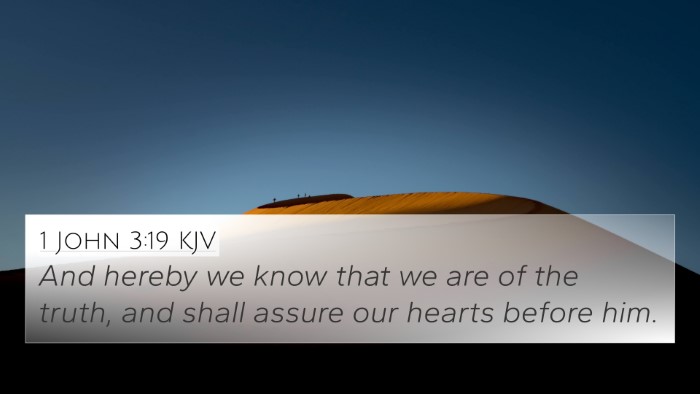
1 John 3:19 (KJV) »
And hereby we know that we are of the truth, and shall assure our hearts before him.

1 Timothy 2:8 (KJV) »
I will therefore that men pray every where, lifting up holy hands, without wrath and doubting.
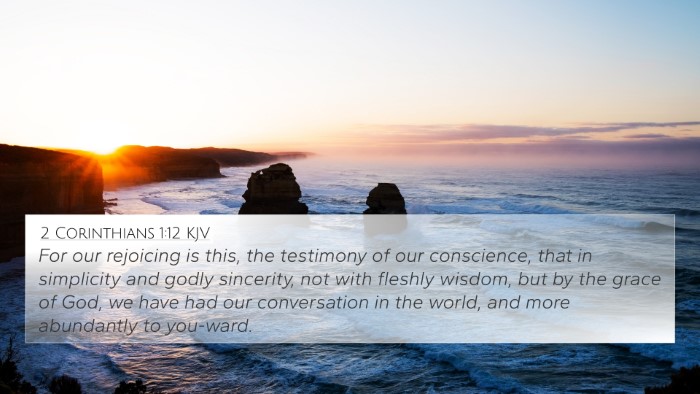
2 Corinthians 1:12 (KJV) »
For our rejoicing is this, the testimony of our conscience, that in simplicity and godly sincerity, not with fleshly wisdom, but by the grace of God, we have had our conversation in the world, and more abundantly to you-ward.

Proverbs 14:26 (KJV) »
In the fear of the LORD is strong confidence: and his children shall have a place of refuge.
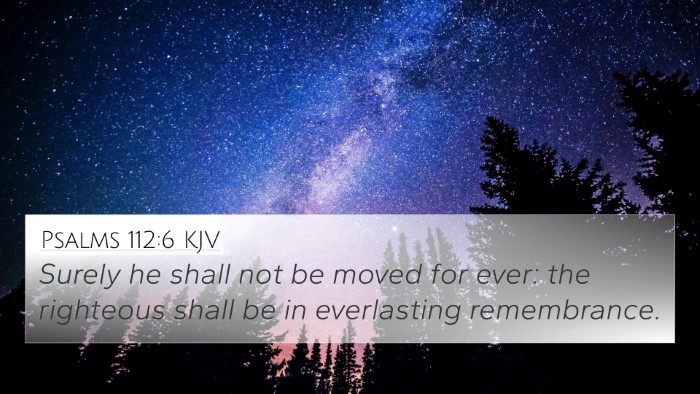
Psalms 112:6 (KJV) »
Surely he shall not be moved for ever: the righteous shall be in everlasting remembrance.

Psalms 27:1 (KJV) »
The LORD is my light and my salvation; whom shall I fear? the LORD is the strength of my life; of whom shall I be afraid?

Job 10:15 (KJV) »
If I be wicked, woe unto me; and if I be righteous, yet will I not lift up my head. I am full of confusion; therefore see thou mine affliction;

Genesis 4:5 (KJV) »
But unto Cain and to his offering he had not respect. And Cain was very wroth, and his countenance fell.
Job 11:15 Verse Analysis and Similar Verses
Understanding Job 11:15
Job 11:15 states: "For then shalt thou lift up thy face without spot; yea, thou shalt be steadfast, and shalt not fear." This verse comes during a dialogue where Zophar, one of Job's friends, is addressing Job amid his suffering and anguish.
In presenting this scripture, we can draw insights from various public domain commentaries, including those by Matthew Henry, Albert Barnes, and Adam Clarke, to provide a comprehensive understanding.
Summary of Key Insights
-
Matthew Henry's Commentary:
Henry highlights that Job's condition reflects human turmoil and the need for divine grace. Zophar asserts that if Job were to prepare his heart and turn to God, he would be restored and able to face the world with confidence.
-
Albert Barnes' Commentary:
Barnes emphasizes the importance of purity and unwavering faith in God. He suggests that Zophar is attempting to encourage Job by asserting that inner purity leads to an outward boldness. This reflects a theme prevalent throughout the scriptures, where righteousness results in confidence before God.
-
Adam Clarke's Commentary:
Clarke points out Zophar's call to righteousness and humility. He interprets "lifting up the face" as an act that symbolizes being in right standing with God. The absence of fear is equated with the assurance that comes from a reconciled relationship with the Divine.
Thematic Connections and Cross-References
This verse can be linked to numerous other verses in the Bible that reflect the themes of righteousness, confidence in faith, and divine restoration. Here are several relevant cross-references:
- Psalms 34:5: "They looked unto him, and were lightened: and their faces were not ashamed." - This verse reinforces the notion of divine sight leading to joy and lack of shame.
- Psalms 56:3: "What time I am afraid, I will trust in thee." - An affirmation of trusting God as a source of strength amid fear.
- Proverbs 28:1: "The wicked flee when no man pursueth: but the righteous are bold as a lion." - This connects directly to the theme of the righteous standing confidently without fear.
- Isaiah 26:3: "Thou wilt keep him in perfect peace, whose mind is stayed on thee: because he trusteth in thee." - This speaks to the peace that results from steadfast faith in God.
- Hebrews 10:22: "Let us draw near with a true heart in full assurance of faith." - This verse illustrates the boldness in approaching God that Zophar articulates.
- James 4:8: "Draw nigh to God, and he will draw nigh to you." - An encouragement that aligns with the idea of seeking purity and righteousness.
- 1 John 3:21: "Beloved, if our heart condemn us not, then have we confidence toward God." - This addresses the assurance that comes from a clear conscience before God.
Tools for Bible Cross-Referencing
To further explore the connections and thematic parallels within the scriptures, there are various tools available:
- Bible Concordance: A valuable resource to quickly find and study related verses.
- Bible Cross-Reference Guide: Offering insights to facilitate deeper understanding and study of linked verses.
- Cross-Reference Bible Study: Methods that prioritize thematic studies across different scripture sections.
- Bible Reference Resources: Helpful for sermon preparation and personal Bible study.
Cross-Referencing Biblical Texts
Understanding how to find cross-references in the Bible allows for deeper engagement with its teachings. Identifying connections between the Old and New Testament can shed light on the continuity of God's message:
- Through detailed study of the Gospels, we see recurring themes and the fulfillment of prophecies.
- Cross-referencing Psalms with New Testament teachings can illuminate how early Christians viewed the Old Testament texts.
- Comparative studies of Pauline epistles and other New Testament letters offer insights into the development of early church teachings.
Concluding Thoughts
Job 11:15 serves as an encouragement not only for Job but for all believers who feel distant from God. By examining connections between this and other Bible verses, we can cultivate a more profound understanding of faith, righteousness, and divine assurance in our lives.
For those engaged in study or sermon preparation, this verse, and its connections to broader biblical themes, are essential for interpreting the dynamics of human suffering and the hope we have in God.
